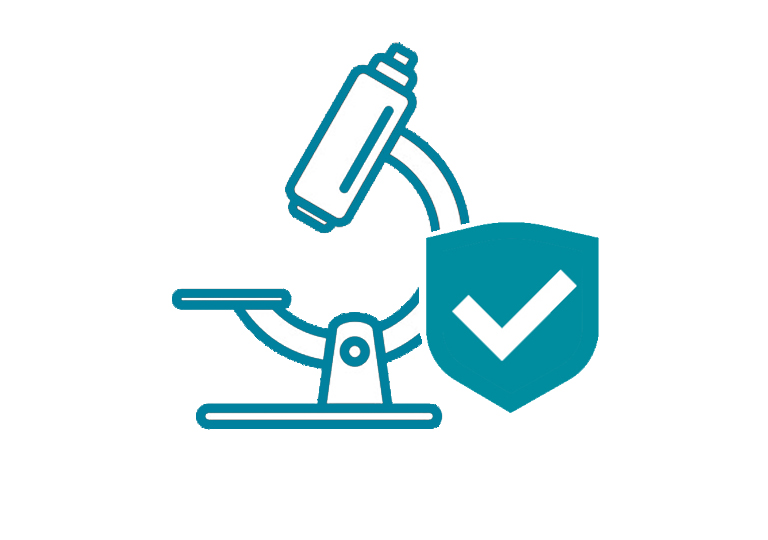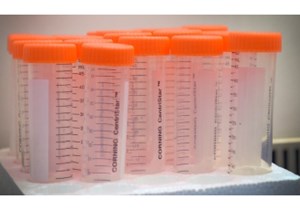Quality control

 Quality control is a crucial aspect of ensuring the reliability and safety of products and materials. It involves systematic processes and procedures aimed at monitoring and maintaining consistent quality standards throughout production or experimentation. At ECACC, we take pride in our commitment to quality control, offering comprehensive services to support your endeavors.
Quality control is a crucial aspect of ensuring the reliability and safety of products and materials. It involves systematic processes and procedures aimed at monitoring and maintaining consistent quality standards throughout production or experimentation. At ECACC, we take pride in our commitment to quality control, offering comprehensive services to support your endeavors.
Sterility testing
ECACC offers a sterility testing service; cell lines and cell culture media can be submitted for testing to determine if microbial contamination is present. This is carried out using classical culture techniques, which are compared to positive and negative controls.
 ECACC isolates bacteria and fungi using two United States Pharmacopeia (USP)/European Pharmacopeia (EP) recommended media:
ECACC isolates bacteria and fungi using two United States Pharmacopeia (USP)/European Pharmacopeia (EP) recommended media:
-
Fluid thioglycollate medium (FTM) for the detection of aerobic and anaerobic bacteria.
-
Tryptose soya broth (TSB) for the detection of aerobes, facultative anaerobes and fungi.
Bacteria and fungi testing by culture to FDA Code of Federal Regulations. Title 21 (610.12)
Mycoplasma testing
Mycoplasma are the smallest (0.2 - 2µm in diameter) and most unusual of the prokaryotes. We can test your cell lines, cell culture media and reagents to determine if mycoplasma is present. The effects of mycoplasma contamination on cell lines can be wide ranging and are often underestimated and can include:
-
alteration of growth rate
-
induction of morphological changes

-
chromosomal aberrations
-
altered cell metabolism
-
decreased viability upon resuscitation of frozen ampoule.
-
induction of transformation, apoptosis, cytokines, signal transduction and oxidative radicals
-
macrophage activation
-
inhibition of antigen presentation
In addition, mycoplasma can also interfere with membrane receptor function and penetrate host cells.
All laboratories carrying out cell culture should test for mycoplasma contamination on a regular basis, and we recommend that a combination of methods is used to determine whether a sample is free of mycoplasma. This is because the different methods have different levels of detection sensitivity and some strains of mycoplasma do not grow in vitro. These can be detected by DNA stain and PCR.
Find out more about Mycoplasma testing here.
Price of testing
|
Name of test |
Quality Control |
Catalogue number |
Price |
Sensitivity |
Species range |
Meets FDA points to consider in characterisation of cell lines used to produce biologicals (1993) |
|---|---|---|---|---|---|---|
|
Bacteria and fungi testing by culture |
Sterility testing |
ECSR04 |
£118.45 |
N/A |
N/A |
N/A |
|
qPCR |
Mycoplasma testing |
ECSR33 |
£125 |
High |
Majority |
No |
|
Indirect Hoechst Stain |
Mycoplasma testing |
ECSR60 |
£125 |
Medium |
All |
Yes |
|
Culture Isolation |
Mycoplasma testing |
ECSR61 |
£175 |
High |
Majority |
Yes |
|
Sample preparation from frozen ampoule |
Mycoplasma testing |
ECSR30 |
£75 |
N/A |
N/A |
N/A
|
Mycoplasma and sterility testing sample submission
Please complete and submit a sample submission form here.
Please note that prior approval of QC testing GMO2 samples is required. Please contact culturecollections.quality@ukhsa.gov.uk for more information.
Any biological material can be Mycoplasma and/or sterility tested if it is cell culture compatible. Please complete the Sample Submission form (see below) and the Biohazard Risk Assessment - Cell Lines and send both forms to us prior to arranging shipment of samples. Once the forms have been received, reviewed and accepted by ECACC, you will be issued with a reference number that will need to be quoted in all future correspondence (and on your samples). A Purchase Order number is also required before any sample can be processed.
If sending growing cultures:
-
growing cultures should have been passaged twice in the absence of antibiotics. They should have been growing for three days since the last medium change. ECACC need to be notified of the time of the last medium change so that, if necessary, the minimum growth time in the absence of antibiotics can be completed at ECACC
-
growing cultures should be sent in flasks topped up with medium. The flask cap should be of the non-vented variety and wrapped e.g. in parafilm, to prevent leakage. The flask should then be packed in a leak proof bag or primary container with adequate absorbent material to contain the contents of the flask if there is any breakage or leak (see below)
If sending frozen cultures:
-
a handling fee will be charged to cover costs of establishing the cell lines in culture
-
details of the cell line growth media and culture conditions must be supplied
For both frozen growing cultures
Flasks and ampoules should be adequately packed and transported according to UN 602 regulations. Approved UN 602 packaging may be obtained from several suppliers, the details of which are available from any Royal Mail Sales Centre. If you use a courier service to ship your samples, please contact the company involved for advice on their own approved packaging.
Parcels should be addressed to: QC Testing Department, Culture Collections, UK Health Security Agency, Porton Down, Salisbury, SP4 0JG, UK
Testing is initiated on Tuesdays and Fridays and takes two weeks for a definitive result. Notification of dispatch of samples to ECACC is very much appreciated.
Important note: Acceptance of Genetically Modified Cell Lines for testing has to be approved by the UKHSA Porton Genetic Modification Safety Committee (GMSC). In these cases please provide as much information about the technology and inserted genes as possible with the Biohazard Risk Assessment - Cell Lines in advance for review. Full review may take 4 weeks or more to complete. Please do not submit samples until the review has been completed.
